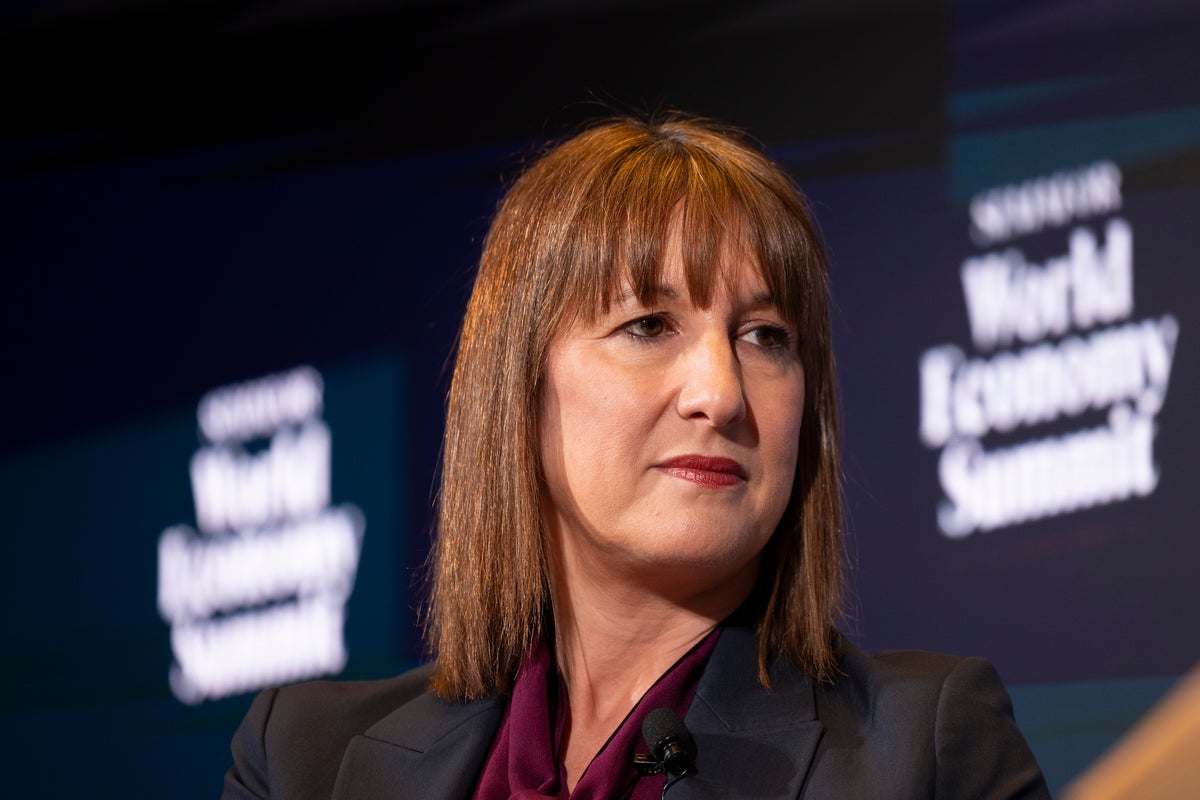Rachel Reeves has made a dramatic bid to appease Donald Trump in an apparent bid to ensure a UK-US trade deal can be agreed.
Speaking to finance leaders on a trip to Washington DC, the chancellor has made a bold call for a new global trading system which would correct “excessive imbalances” between different countries and trading blocs.
Her remarks are a direct attempt to deal with the issues raised by President Trump when he unleashed sweeping global tariffs earlier this month, which sent shockwaves through stock markets before being abruptly paused for 90 days.
Speaking at the International Monetary Fund’s biannual meeting on Thursday, Ms Reeves said: “I am proud that the UK has its global, open reputation, and it is one I want to strengthen.
“But the world has changed and so must we. We are in a new era of global trade. And in that new era, we need a system that provides security for working people, stability for businesses, and prosperity for national economies.”
She added: “To deliver this, we need to do three things: tackle excessive global trade imbalances, reduce barriers to trade, and promote strong multilateral institutions.”
During a panel discussion on the future of the global economy on Thursday evening, Ms Reeves said the US has “a point” that global trade had become too unbalanced, but “it does matter where things are made and who makes them”.
The chancellor said: “There’s been a feeling in my country and in America and many other developed countries that the system we have today delivers for some, but not for all and that jobs have been hollowed out in certain sectors of the economy.”
Despite this, she said that it was important to acknowledge where goods were made.
“We cannot be agnostic or naive about that, especially in the world in which we live today where resilience and security matter more than they have done for a long time,” she added.
International Monetary Fund managing director Kristalina Georgieva praised Ms Reeves’s efforts to “lift up growth in the UK” during the discussion.
“She is tackling very tough issues, getting reprioritisation of spending, getting the regulatory environment to be more rational and then taking on the battle to get it done, and it’s really impressive,” Ms Georgieva said.
The UK was on the lower end of Mr Trump’s threatened tariffs – at 10 per cent instead of the 20 per cent on exports from the EU – despite the US having a trade surplus with Britain.
Nevertheless, there are fears that they could cost the UK economy thousands of jobs, not least in the automotive industry, which will be hit by 25 per cent tariffs.
President Trump used the US’s trade deficits with countries around the world as a reason for imposing the tariffs, which now threaten the global economy.
But the UK is racing to complete a trade deal with the Trump administration before the 90-day pause comes to an end in early July.
Ms Reeves hopes her proposals will help create a global trade system that provides security for working people, stability for businesses, and prosperity for national economies in a world that has changed.
To spearhead the drive for reform, the chancellor will hold talks with counterparts in Washington about the reform agenda ahead of upcoming meetings of the G7 and International Monetary Fund later this year.
She is due to meet Trump’s US Treasury secretary Scott Bessent in the hopes that it will help get the trade deal over the line.
Already, the UK has signalled that it will cut tariffs on US cars imported to the UK from 10 per cent to 2.5 per cent and shelve the proposed digital services tax.
Earlier, Ms Reeves, said: “This government is meeting the moment to protect fair and open trade. Following recent announcements reducing tariffs and support for the zero-emissions vehicles industry, today’s package will help businesses compete fairly with international exporters, supporting a world economy that provides stability and fairness for working people and businesses alike.”

